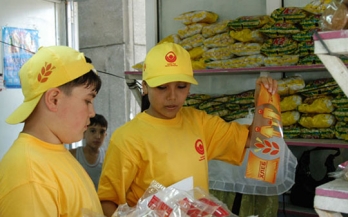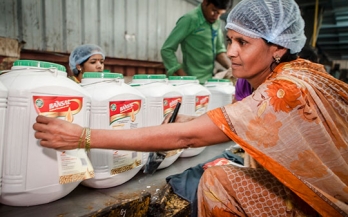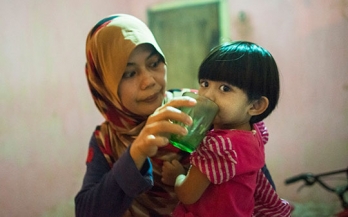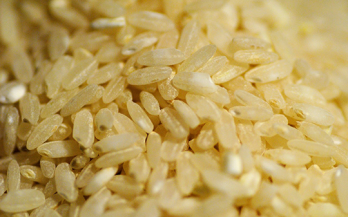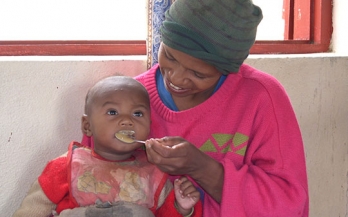The objective of this study was to document the achievements, challenges, lessons learned, and management responses associated with national fortification projects in Morocco, Uzbekistan, and Vietnam.
The objective of this study was to provide an overview of efficacy, effectiveness, economics of food fortification and biofortification, and status of and challenges faced by large-scale food fortification programs in low- and middle-income countries.
Lack of data and tools to understand and design for the optimal mix of interventions, across groups and over time, is a key limitation in managing this inherent tension. This series of articles proposes a way forward to address this gap.
This investigation used data from focused ethnographic studies in five rural counties in Kenya to determine whether the concept of “special foods for infants and young children” exists in the different ethnic groups in these areas as an identifiable component of cultural beliefs and knowledge.
Iron deficiency anemia is a major public health problem in sub-Saharan Africa. The objective of this study was to evaluate the efficacy of a complementary food fortified with sodium iron EDTA plus either ferrous fumarate or ferric pyrophosphate to combat iron deficiency anemia in preschool-age children in a highly malaria endemic region.
This paper reports on case studies supported by the Global Alliance for Improved Nutrition (GAIN)-UNICEF USI Partnership Project to investigate processed food industry use of adequately iodised salt in contrasting national contexts.
The objective of this study was to assess the contribution of iodine intake from iodised household salt, iodised salt in instant noodles, and iodine in ground water in five regions of Indonesia.
The papers presented in this Supplement cover a wide range of topics pertinent to the implementation of large-scale food fortification programs and contribute to strengthening ongoing programs, as well as providing important lessons for new countries.
In this review, an overview of the Integration to Effective Implementation framework, as applied to iron, is presented along with a summary of the key issues addressed during the Micronutrient Forum session series.
The objectives of this study were to review the evidence base for maternal and Infant and Young Child Nutrition (IYCN) actions and to discuss the development of the Maternal, Infant, and Young Child Nutrition Network in relation to the IYCN Working Group's role and structure.
